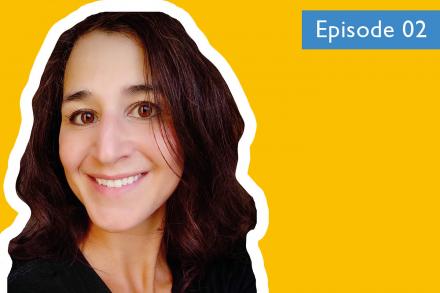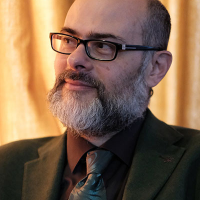The People behind the Learning Portal: Julia Vidile, Portuguese Brazilian translations

Linux Professional Institute (LPI) launched the Learning Portal in June 2019. The Learning Portal is the repository of all the Learning Materials for our exams. The whole project is managed by Dr. Markus Wirtz, manager Education Programs at LPI. We designed it as an international endeavour – learning is easier in your mother tongue! – hence we needed a team of authors, editors, and translators to design, write, and localize the body of lessons.
This series of interviews is a journey toward knowing better the People behind the Portal: the Linux and Open Source enthusiastic professionals who are making the Learning Portal possible.
By reading this series of interviews, you will know more about Contributors’ work, the peculiarities of translating IT educational material, and the challenges Contributors have to face restoring what could be lost in translation. And about why working on the Learning Portal is quite cool and nerdy.
And if all this sounds interesting and you want to join us, we would be happy to receive your feedback at learning@lpi.org.
What is your academic and professional background?
My first college degree was in Arts but, although I still dabble in woodcutting, I’ve never worked professionally as an artist. Since I already knew many languages (English, French and Italian, besides Brazilian Portuguese), I found a job as a translator soon after I finished college, and a couple of years later I decided to do a 2-year specialization in Translation.
I’ve been a professional translator since 2002. Having studied Arts in college, I translated mostly books and magazines on Humanities (Arts, History, Religion, Culinary, Fashion…). I have more than 50 books published in Brazil!
At the time, I was married to Henrique Ulbrich, a notorious Brazilian geek, hacker and technology journalist. He introduced me to Linux and the Linux Community. Thanks to him, I became a translator for Linux Magazine Brazil in 2004 and, later, for other big Brazilian magazines on IT and technology (and even a couple of open source programs…).
I moved to France in 2006 to do a Masters in Art Criticism, while still working as a freelance translator. From 2015-2019 I worked as an in-house translator for a French video games company and, since January 2020, I’m back to being a freelancer, while developing a second professional activity as a sophrologist (look it up!) specializing in expatriation and grief. And I haven’t even started talking about my hobbies yet…
When, and how, did you decide to use your skill in developing learning materials for Linux Professional Institute?
At the end of 2019, the former editor for Linux Magazine Brazil, Rafael Peregrino, recommended my work to Dr. Markus Wirtz, who was looking for a Portuguese Brazilian translator to LPI – and the rest is history!
What is your contribution, so far, to the Learning Portal, and what’s next for you in this project?
I’ve so far translated Linux Essentials, LPIC-101, and I’m making good progress on the material for LPIC-102. I am not sure what comes next, but I hope this collaboration will last for a long time.
The LPI Learning Portal as a community, you say: what is your experience so far, what tools and features do you use in the process? What can you tell us about the workflow? And what “opensourceness” can you recognize in a project which is about education?
LPI’s localization workflow is entirely open source. We had to do some adjustments to the workflow in the beginning, but it’s working seamlessly now. For the translations themselves, we use OmegaT, an excellent computer-assisted translation tool (which is *very* different from automated or machine translation… again, look it up!). Thanks to the localization process I got to learn a lot more about command line tools and I’ve even incorporated some of this new knowledge to my other jobs as well. It’s also teamwork, since I work with technical proof-readers to guarantee the quality of the final texts.
<< Read the previous post of this series | Read the next post of this series >>
